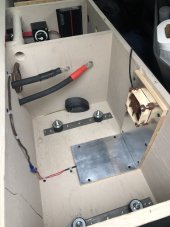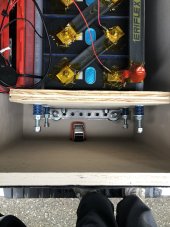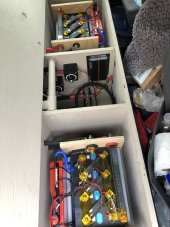Short_Shot
Solar Addict
- Joined
- Jul 13, 2021
- Messages
- 1,823
I mean. You didn't ask. You just stated that's what you'd use.
The issue is we can't answer that without knowing exactly what type of threaded rod you have, and even then there will be significant variation in the results that you won't be able to detect.
Hence: springs. Easy math. Easy to measure. Easy to test.
The issue is we can't answer that without knowing exactly what type of threaded rod you have, and even then there will be significant variation in the results that you won't be able to detect.
Hence: springs. Easy math. Easy to measure. Easy to test.





